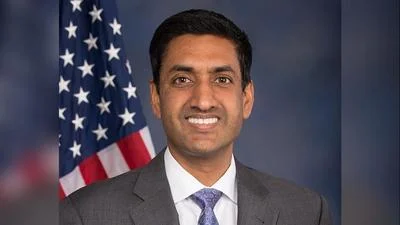John Taylor, Professor of Economics at Stanford University and developer of the "Taylor Rule" for setting interest rates | Stanford University
John Taylor, Professor of Economics at Stanford University and developer of the "Taylor Rule" for setting interest rates | Stanford University
Debates can play an important role in democratic elections by educating voters and allowing politicians to distinguish themselves from their opponents. However, it is not always easy to get candidates to agree to face off against each other. This poses a problem in countries like Sierra Leone, where voters have limited sources of election information.
In 2012, an NGO in the West African nation conducted an experiment by sponsoring debates among parliamentary candidates in 14 races. Recordings of these debates were screened at large public gatherings. Surveys indicated that people who watched the debates were more knowledgeable about the candidates and tended to vote for those who performed better on stage. The debates also seemed to influence the candidates: 18 months after the election, MPs who had participated in a debate spent more discretionary funds on development projects in their constituencies.
Despite this success, there was no move towards mandating more debates. "Despite the national electoral commission saying that Sierra Leone should make debates mandatory going forward, it didn’t happen," said Katherine Casey, a professor of political economy at Stanford Graduate School of Business who has done extensive research in the country. "We were trying to think about why."
Casey and Rachel Glennerster of the University of Chicago ran another experiment during Sierra Leone’s 2018 parliamentary elections to discern what incentives might push politicians to debate one another. They found that simply guaranteeing a public platform for disseminating debates dramatically increased candidates’ participation.
Initially, they tested whether the absence of debates resulted from candidates' reluctance or voters' disinterest. They privately reached out to candidates in 72 races and asked if they were interested in debating. Those who expressed interest were asked to contact their rivals and settle on a day and time. In three-quarters of races, at least one candidate was interested in having a debate; however, only a few could persuade their rivals to join them.
"This makes intuitive sense, as debates are sort of zero-sum events in which one person wins and the others lose," Casey said. "At the end of the day, we had interest from more than one candidate in only about one-third of races."
The outcomes changed significantly when politicians' willingness to debate became public record. The researchers established a platform where voters could see whether candidates chose to participate. When an hour of radio time was offered, participation rose from roughly 33% to 70%. Frontrunners joined when a video platform was introduced.
"If you didn’t participate, then voters would assume you’re probably not very good," Casey explained.
Next, researchers examined voters' interest by coordinating with local movie halls for screenings of recorded video debates and distributing free tickets randomly within varying distances from cinemas. Nearly 60% of nearby residents attended screenings; attendance dropped but remained significant even among those living further away.
Reinforcing these findings, cinemas continued showing the debate after researchers left and people continued attending despite admission costs. "This suggests the demand side doesn’t seem to be the problem," Casey noted.
These experiments created significant incentives for politicians to take part in debates at minimal cost — $200 for an hour of radio airtime — highlighting how foreign donors and NGOs can magnify their impact inexpensively.
"Opening up a debate platform is a straightforward way to support the democratic process," Casey concluded.




 Alerts Sign-up
Alerts Sign-up